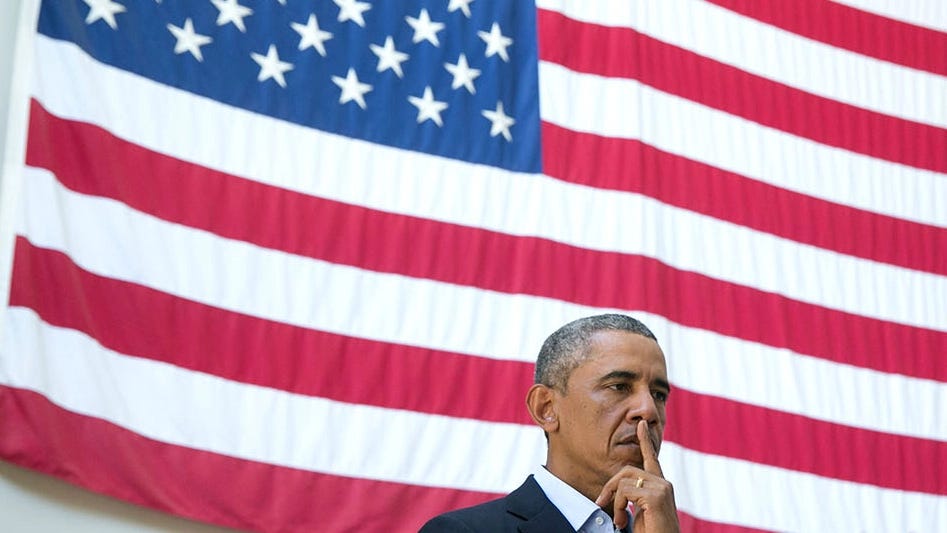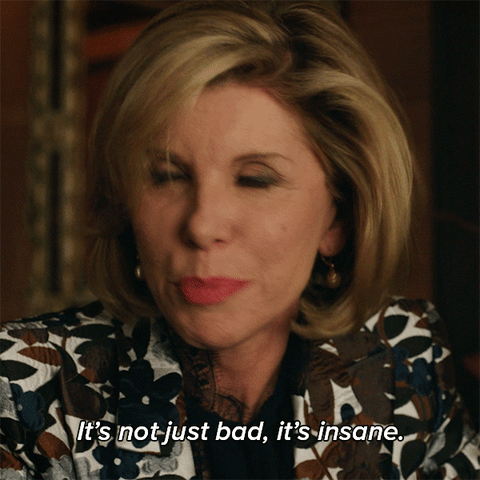How Obama Changed Liberalism
If socialism prevails this century, it won’t be in opposition to the Democratic Party.

We have entered a period that most people don’t know about, talk about, or care about but that is important to political parties and the candidates who want to lead them.
It’s called the invisible primary, though it goes by other names. It’s that period after a midterm but before official primaries start in which candidates elicit commitments from various party factions, mostly from people who can write very big checks.
That we have entered this period explains the seemingly inexplicable behavior of political operatives attempting to smother candidates in their cradles. Why are David Sirota, Glenn Greenwald, and a coterie of writers at The Young Turks attacking US Rep. Beto O’Rourke? One reason is that they are cynical apparatchiks paid to detest the Democratic Party. Another is the invisible primary. They’re trying to clear the field of Bernie Sanders’ potential rivals before primary voters are ready to pay attention.
As of right now, all of this seems like something that’ll work itself out. As it does, I think it’s worth remembering that this Democratic Party is very different from the party of my youth. I’m not only talking about the difference between the party of Jimmy Carter/Bill Clinton and Barack Obama. I’m also talking about how liberalism changed, and how Obama is central to understanding that change.
Most of us are familiar with the story of the Democratic Leadership Council and its successful push to bring the party to “the center” in order to reclaim voters in thrall to Ronald Reagan. This was a fizzy period in Washington in which wonks debated terms like “centrism” and “third way” that would later become widely accepted “truths.”
Some say this was a low point for liberalism, and there is something to be said for that. This was, after all, a period in which Clinton went out of his way to prove to white voters that the Democrats were not a black party. (Case in point, welfare reform).
But it’s important to remember that it was still liberal, but liberal in a very narrow sense that was often invoked by Cold War liberals worried about comparisons to totalitarianism. (Think Joseph McCarthy and the House Un-American Activities Committee). Liberals during this time, and during Clinton’s time, accepted the assertion, embraced by Reagan, that a government is best when it governs least. The point of any government was protecting liberties, free enterprise and individual rights. In other words, liberalism was supposed to be everything communism wasn’t.
This was a distortion of liberalism, according to John Dewey. Even so it was a powerful understanding and the prevailing view of liberalism from the end of the Second World War to the end of the century. It was especially potent after the Soviet Union collapsed. Liberalism no longer had to vie with totalitarianism. A period of laissez-faire capitalism that began with Carter/Reagan flourished before going global. It’s no coincidence that the rage you see against the Democrats, especially against Hillary Clinton, began then. In a very real sense, Sirota et al. are today making the same arguments that leftist critics of the Democratic Party made in the 1990s.
Dewey thought this was an impoverished understanding of liberalism. While free minds, free markets and constitutional rights are important, he wrote, liberalism doesn’t end there. If it did, liberalism would be amoral, and that’s not what liberalism is about. As historian Helena Rosenblatt wrote recently for Boston Review:
Dewey explained that there were “two streams” of liberalism. One was more humanitarian and therefore open to government intervention and social legislation. The other was beholden to big industry, banking, and commerce and was therefore committed to laissez-faire. American liberalism, he insisted, had nothing to do with laissez-faire, and never had, nor did it have anything to do with the “gospel of individualism.” Instead it stood for “liberality and generosity, especially of mind and character,” and its aim was to promote greater equality and combat plutocracy with the aid of government.
Which brings me to Obama.
The former president built on the achievements of previous Democratic presidents, and accomplished more. You could say it wasn’t enough, but can’t say he did less. The Affordable Care Act alone is a textbook example of using government to effect positive change, of standing for “liberality and generosity, especially of mind and character,” while establishing once and for all that healthcare is a human right.
But while Obama had to govern under enormous constraints, chiefly due to an obstructionist Republican Party, it was his rhetoric that was truly liberal and that continues to resonate with Democratic voters. Obama rarely talked about civil rights without also talking about civic duties; about individual liberties without social responsibilities; about economic self-interests without the common good. Most importantly, he imagined, in moral terms, an America as an interconnected web in which everyone did unto others what everyone would have done unto them.
This may sound like hagiography, but I don’t mean it to be. There are ways aplenty of criticizing Obama. My point is that the former leader of the Democratic Party brought liberalism back to where it might have been had not Soviet totalitarianism posed such a threat. Now, with the USSR long gone, and with capitalism proving to be unstable after 2008, we are seeing, within the party, a fuller expression of liberalism in which the political wing and the economic wing of the ideology are coming back together.
If socialism prevails this century, it won’t be in opposition to liberalism.
It will be as liberalism’s partner.
—John Stoehr

Subscribe now!
Politics is bad! Politics is good! It’s complicated. That’s why there’s the Editorial Board. Delivered every business day, right in time for lunch, the Editorial Board seeks to find the signal amid a cacophony of noise. For $5 a month (or at a discounted rate of $55 a year), you get all this and so much more (like my enduring gratitude, which, I suppose, isn’t worth much, but there you go). Subscribe now! —JS


